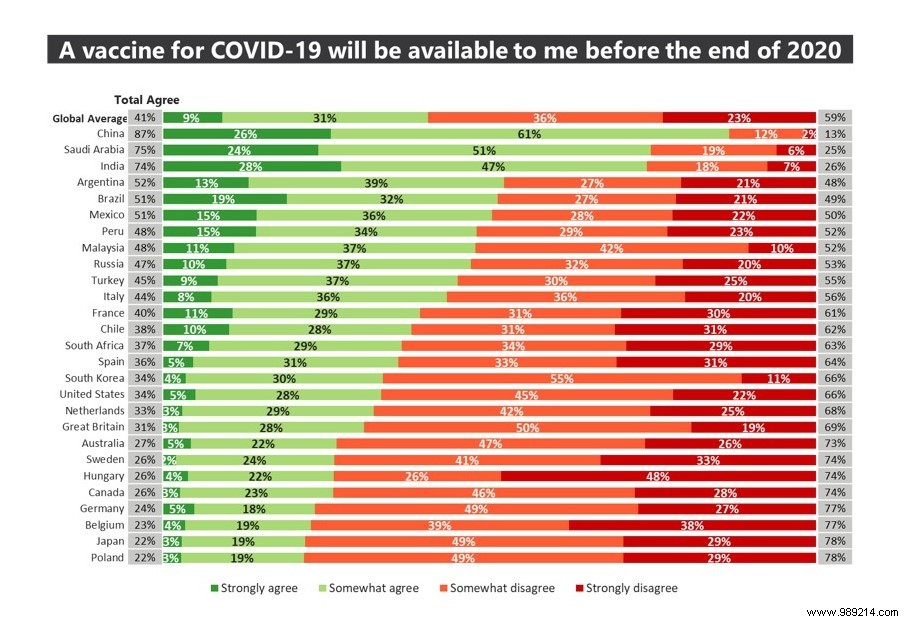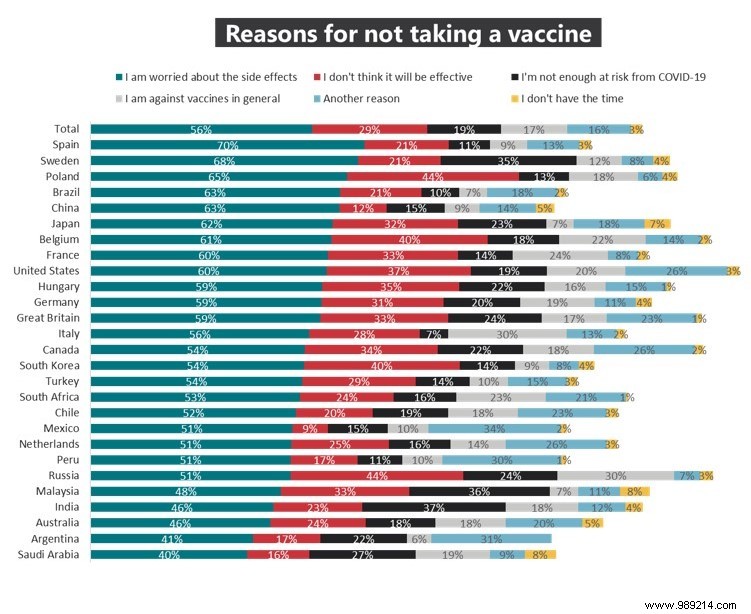In a recent Ipsos survey of nearly 20,000 adults in 27 countries, 74% of respondents said they were in favor of vaccination against COVID-19. In France, more than 40% of respondents expressed concern, particularly about potential side effects.
More than 150 vaccines are currently in development around the world to fight Covid-10. Among them, five have passed the phase 3 stage, the last step before applying for marketing authorization. Russia also announced on August 12 that it had developed the "first" official coronavirus vaccine, without anyone having the slightest idea of its real effectiveness.
If on the laboratory side the race has been on for a few months, it remains to be seen how the world population will react to these potential vaccines. To find out, the Ipsos Institute conducted a survey of 20,000 adults from 27 countries .
Overall, 74% of respondents tend to think they will get vaccinated against Covid-19 when a vaccine will be available (37% strongly in favor and 37% somewhat in favor). Conversely, 26% disagreed (15% somewhat disagree and 12% strongly disagree).
The countries with the highest intention to vaccinate against Covid-19 are China (97%), Brazil (88%), Australia (88 %) and India (87%). On the other hand, those with the lowest vaccination intention are Russia (54%), Poland (56%), and Hungary (56%). France is just behind, with 59% of respondents generally in favor of vaccination against Covid-19 .

In all 27 countries, 59% of respondents do not think a vaccine against Covid-19 will be available before the end of 2020.
Here again, the Chinese stand out for their optimism, with 87% of respondents expecting a vaccine to be available within the year. In France, only 40% of respondents believe it. Conversely, the most skeptical are the Germans, Belgians, Japanese and Poles, among whom less than one in four adults expect a vaccine to be available in the next four months.

As part of this survey, Ipsos also interviewed 5,000 adults who had no intention of getting vaccinated to try to understand why they did not. would not . In each of the 27 countries, the main reason is concern about side effects (60% of French respondents). Many will also doubt the effectiveness of such a vaccine (33% of French respondents).
The third most common reason is the perception of not being at enough risk against disease. It concerns 19% of respondents worldwide (14% in France). Finally, the last reason given is opposition to vaccines more generally . It concerns 17% of respondents worldwide, and 24% of French people.
